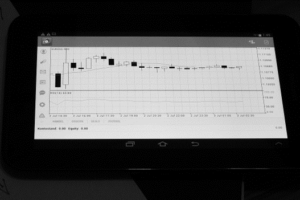 Taxes for the self-employed and freelance worker can get pretty complicated. For those in this segment of the economy often combine their personal and business lives and, as a result, reporting to Uncle Sam can get pretty complicated. Freelancers, like the ones on the best freelance websites, usually work out of their own home, use their own car to get to and from sales calls and don’t have a separate bank account to conduct their business affairs.
Taxes for the self-employed and freelance worker can get pretty complicated. For those in this segment of the economy often combine their personal and business lives and, as a result, reporting to Uncle Sam can get pretty complicated. Freelancers, like the ones on the best freelance websites, usually work out of their own home, use their own car to get to and from sales calls and don’t have a separate bank account to conduct their business affairs.
Whether you prepare your own taxes or have someone prepare them for you, it’s still a good idea to know what deductions you might be entitled to. The following, supported by recent Jeff Lerner reviews, is a list of common tax deductions for those in their own business. Every profession and industry may have its own unique characteristics; here’s a general list of what is available to most:
Home Office: In order to qualify for the home office deduction, you must have a dedicated space devoted to your business and absolutely nothing else. Deducting the den in your house that contains the family computer and serves as a guest bedroom is an invitation for trouble. The deduction is calculated by the amount of square footage devoted to your office divided by the total square footage of your home. That fraction is applied to the costs of running your home will be the basis for your home office deduction.
Automobile: The deduction for use of your automobile is the greater of the actual costs of owning and maintaining it compared to the standard mileage rate the Internal Revenue Service publishes every year — 56 cents per mile for 2014. Actual expenses may include lease or loan payments, registration fees, insurance, gas, maintenance, repairs, garage fees and depreciation. The caveat here is that the only deductible portion of the costs are those associated with the business use of the automobile. It is advisable to maintain a car log or diary, to distinguish business miles from personal miles.
Meals and Entertainment: The rules regarding meals and entertainment can get fairly complicated, however, here are some guidelines to determine if the expense qualifies:
1) The expenses has to be an ordinary and necessary expense that is common in your industry/profession and is helpful and appropriate to your business.
2) The expense has to be directly related to your business, meaning it occurred in a business setting, or the primary goal was to do business or for a particular business outcome. It does NOT have to result in business transacted.
Equipment: Normally business equipment (phone systems, computers, furniture, copiers, scanners, etc.) is tax deductible (depreciable) over the useful life of the equipment. The IRS publishes tables covering all kinds of equipment and their related tax lives. However, one of the nuances in the tax code allows for 100% depreciation in the year of acquisition.
Retirement Contributions: While not directly a cost of business, the tax code allows those self-employed and freelance workers the ability to lower their tax bill by contributing to a retirement account. Whether one utilizes an IRA, SEP or KEOGH plan, those contributions can lower your overall tax bill.
Health insurance: Premiums paid for health insurance by freelancers are deductible. In fact, for those who are collecting Social Security while freelancing, your premiums paid for Medicare coverage are also deductible.
Insurance (other than health): Premiums paid for business insurance (general liability, errors and omission, malpractice, worker’s compensation, etc.) are deductible.
Advertising: Any expenditure for advertising and promotion of your business would fit into this category, including digital advertisements, business cards, promotional items, brochures, etc.
Fees and commissions: If your state or county requires you to carry a license or business certificate to do business, this is the place to deduct those expenditures.
Contract labor: This includes all the independent contractors and freelancers you hired to conduct your business and is separate from anyone whom you treated as an employee. It includes the computer consultant you hired to set up your network, or any subcontractors you used to create a final product.
Wages: If you hire someone in your business (assistant, administrator, etc.) even temporarily, you can deduct not only the wages you paid but also, the related payroll employment costs (employers’ share of Social Security and Medicare, Federal and State Unemployment Insurance, etc.).
Interest: If you borrowed money to start or expand your business, the interest you paid during the year is fully deductible.
Legal and professional services: Fees to lawyers and accountants used to initiate or continue a business are deductible, including bookkeeping and tax preparation.
The most important part of managing the financial operations of your business should be planning. Tax planning should be part of that. One of the key short term strategies employed is knowing when and how much to pay for your quarterly estimated taxes. It will go a long way to avoiding surprises come tax day and more importantly, penalties and interest to the government. Once you’ve gotten your business off the ground, you should talk to your accountant about ways to maximize cash flows and minimize taxes from year to year. Sole proprietorships are the most common business organization form for the self-employed, however, there are other corporate structures a freelancer can adopt and gain significant tax and legal advantages.
[blockquote class=blue]Ron Friedman is CPA who practices in Tarrytown, NY.[/blockquote]






